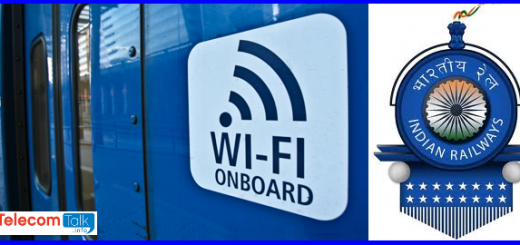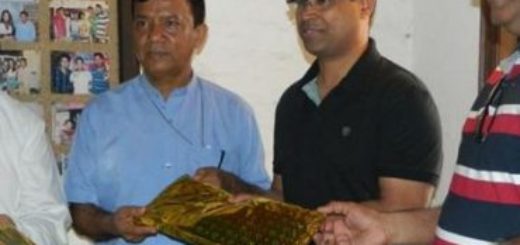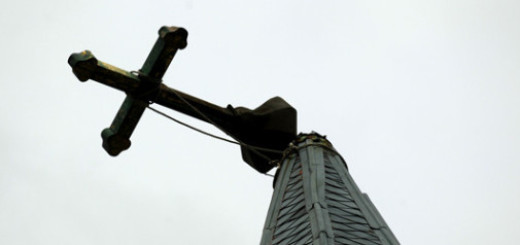Why Modi Poured out Christ’s Heart in his Mann Ki Baat?
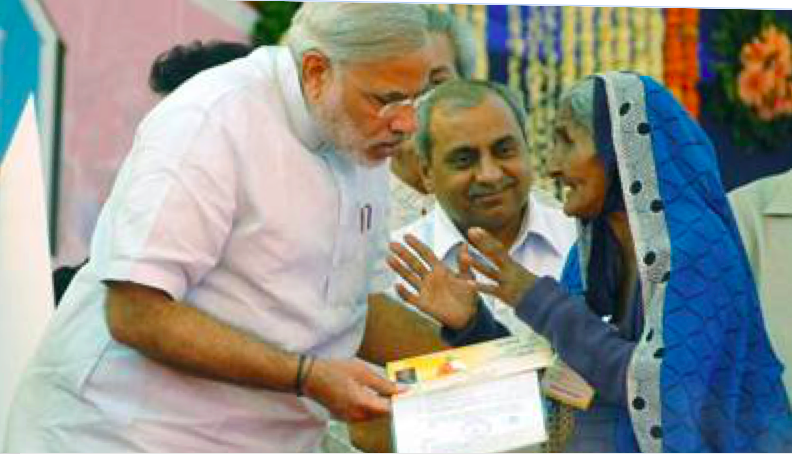
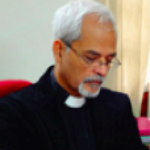 Valson Thampu, in Daily O, 25-12-2016
Valson Thampu, in Daily O, 25-12-2016
Showing a caring approach to the poor is a far more powerful political strategy than derailing India via demonetisation.
(Note: Valson Thampu is a known writer, political and social analyst and most of all the principal of St. Stephen’s College, Delhi. Weather one likes it or not, Modi’s regular Maan ki baat is his forte as it helps him to connect with people in India directly, to correct, modify or improve upon his announced policies for the good of the whole nation. As PM he is the regular recipient of praise, blame and criticism from all quarters, especially opposition parties and the press. It is impossible to answer every question from below directly. He uses his weekly talks as a substitute for press conferences other PMs used to resort to. But Manmohan Singh was a defaulter on both counts. So he was nick named as Maun Mohan. Democracy is a talking shop and vertical dialogue is the best way to exchange the views of the ruler and the ruled.
What is praise-worthy in Modi’s reference to Jesus and the widow’s mite is that he put Jesus on a pedestal for two points: 1. His top concern for the poor, “He came to peach good news to the poor,” by word and example. 2. His respect and admiration for the “generosity” of the poor. The rich often gives alms calculatedly from what they don’t need. For the rich, God is in their purse, and they show their greatness by the big amounts of money they can offer to temples or for any other good causes. To the extend they do it for show, they receive their reward here itself. Thoughtful people see their generosity as “insignificant portions with immoderate pride" as the writer points out.
Modi has seen how Jayalalithaa is admired and adored by the poor in Tamilnadu and if he is truly trying to imitate her it will only bring good dividends in winning elections in 2017. After being cheated by politicians in so many elections India’s poor now know that all politicians are corrupt and try to buy their votes by  paying a hundred rupee note only to extract from him/her Rs.1000/-. So they now accept bribe from all parties and vote for a party that does not bribe. That way, let the poor correct the incorrigible politicians. james kottoor, editor)
paying a hundred rupee note only to extract from him/her Rs.1000/-. So they now accept bribe from all parties and vote for a party that does not bribe. That way, let the poor correct the incorrigible politicians. james kottoor, editor)
Modi enjoys springing surprises. Sadly, he is in a domain in which it is risky to spring too many of them. Springing surprises is an old and honourable tradition. Those who lack energies of mind and are limited in imagination, peddle stereotypes and recycle clichés. There are but a few who escape this rut. Modi appears to belong to this rare species.
I have heard many a politician speak. I have endured them. I have heard, worse still, a large number of academicians speak. I have suffered them. I have listened to too many religious leaders. I have, somehow, survived them!
Modi began his Mann ki baat today with an episode from the life of Jesus recorded in St Luke chapter 21 verses 1 – 4. Jesus is seen standing at the treasury in Jerusalem temple. Many rich people, whose god is in their purse – whether in Israel or India, in Judaism or Hinduism or Christianity; it makes little difference in this respect – come and show off their piety by casting substantial offerings. In their train comes a poor, old, emaciated widow and casts two copper coins – all she had – into the offertory box.
Jesus remarks that the widow gave the most. Others gave a small portion of their abundant wealth, which they could afford to: insignificant portions with immoderate pride.The widow, in contrast, gave ALL she had. She gave to the extent of hurting herself. She gave herself.
Jesus, Modi pointed out with characteristic acumen, not only served the poor but also respected the service rendered by the poor. He respected the sacrificial spirit of the poor. This, he said rightly, is basic to empowering them. The poor need empowerment, not charity.
Having been a hardcore academic, my mind began to tick. I needed an explanation for this surprising nuance in the unfolding Modi saga. I cannot dismiss this as a clutch of fine words shrewdly spoken on the occasion of Christmas, when it is politically profitable to play to the Christian gallery, especially keeping BJP's need to gain a foothold in Kerala.
My thoughts wandered to Rajaji Hall, Chennai. Modi paying homage to the late Jayalalithaa. I could not resist the thought that something native to his psyche – that remained for long in a hazy fashion – could have stirred up on that occasion.
The principal ingredient of the Jayalalithaa magic was her heart for the poor, her willingness to care for them, which gained her an abiding world of affection bordering on adoration. The loyalty of the poor was the principal reason for the political sustainability of Jayalalithaa too.
Pro-poor politics, unlike pro-rich or pro-corporate politics, is sustainable and affordable politics. I will not fault a politician for seeking avenues to secure an enduring vote base. Only the incorrigibly naïve would expect politicians to be self-effacing saints.
Even so, politics affords two diverging paths to profit. The first, the most commonly followed, sees politics as the art of the possible, driven by money, caste, communalism and crime, which banks heavily on human gullibility.
The second is the path that Atalji called politics of dharma, or righteousness. I remember having breakfast with Vishnu Hari Dalmia, who was then the national president of Vishwa Hindu Parishad. "My only remaining wish," he told me with utmost sincerity, "is to see that a temple is built for Lord Ram in Ayodhya".
"If Lord Ram is the embodiment of righteousness," I asked Vishnuji, "how can we confine him to Ayodhya? Isn't he relevant, as Gandhi believed he was, to India as a whole? Shouldn't we think of turning India into a Temple of Righteousness? "I told Vishnuji at that time that I would work alongside him in this mother of all missions.
Not even my personal appreciation for Modi will prevent me from saying that demonetisation is more a political than an economic, exercise. Well, I do expect a politician to do politics, and not accuse him of politicising issues, as is fashionable these days!
I would want to believe that the thoughts shared in today's Mann ki Baat mark a shift in Modi's strategy. Very likely he realises that enunciating a politics of righteousness, distinguished by a caring approach to the poor and the hungry, is a far more powerful political strategy than derailing the country via demonetisation. The home-truth about our electoral politics is that the poor are the largest vote bank in India. It is a truth that, strangely, politicians and poll pundits remember only on the eve of elections and forget soon after the polling.
If any national leader wants to secure an impregnable, unassailable position in Indian politics, all that he or she has to do is to practise consistent pro-poor politics. I am all for vote-bank politics, except that I deprecate vote banks based on caste, religion, or region. The only vote bank I endorse is that of the poor. They are an overwhelming majority.
No political party has come to power at the Centre, for years now, with more than 45 per cent of the votes polled, which works out to around 25 per cent of our electorate. The poor, in comparison, are 50 per cent. So far the poor have remained an uninformed, disempowered lot. They did not know the power of their votes. Now they do.
I remember my driver in Delhi telling me in 2015 with startling exhilaration, "Sir, I have taken money from both and voted for a third." That, I thought, marked a turning point of sorts. Modi, more than most others, has his ear to the ground. He knows that the earth has begun to shift under our feet.
Old tricks will work no longer. They could even be counterproductive. The way the poor and the lower middle class have responded to the ordeal of demonetisation could have encouraged him. He knows they will walk with him a thousand miles, if only at the end of the gruelling exercise, there is something to mitigate their distress.
If Modi wants to send them reassuring early signals, I'll not grudge him his political acumen. Power emerges no longer from the barrels of guns. Today it rests at the fingertips of the poor; for they are the overwhelming majority in this country.

